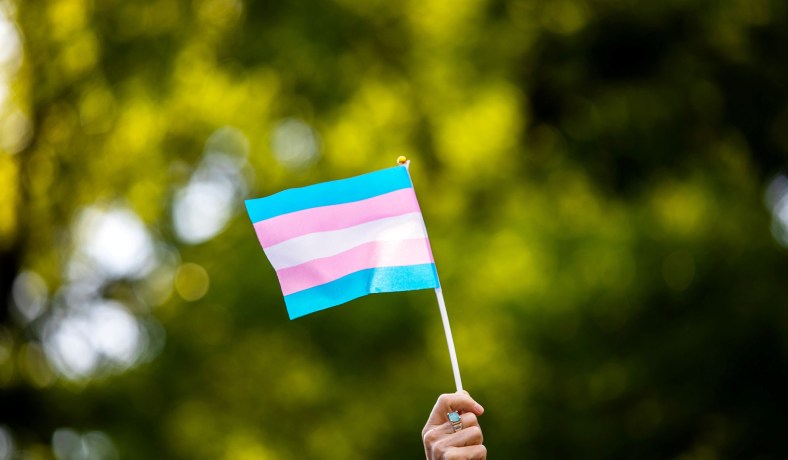
A while back, I wrote a piece here at NRO about why I believe feminism and radical gender ideology are incompatible. The occasion for those thoughts was the participation of Angela Ponce, a biological male who identifies as a woman, in the 2018 Miss Universe pageant and the general acclaim with which most of the media greeted this individual.
On entering the pageant, Ponce wrote on Instagram: “Today I am here, proudly representing my nation, all women and human rights,” and later said of the possibility of winning the competition, “Trans women have been persecuted and erased for so long. If they give me the crown, it would show trans women are just as much women as cis women.”
In response to this, I posed the question (which is enough to get you drummed out of polite company and off of most social-media platforms these days): Can Ponce actually “represent all women” without being a woman at all?
Since I wrote that article, developments on this front have only escalated, with this recent CNN tweet as a prime example:
Individuals with a cervix are now recommended to start cervical cancers screening at 25 and continue through age 65, with HPV testing every five years as the preferred method of testing, according to a new guideline released by the American Cancer Society https://t.co/gUhYdIIx69
— CNN (@CNN) July 30, 2020
For those who aren’t up to date on the latest intersectional lingo, “individuals with a cervix” is one of the approved progressive ways to refer to biological women, as it supposedly takes into account transgender and “non-binary” individuals. So, for instance, a biological woman who identifies as a man might still be an “individual with a cervix,” and using this phrase includes such a person, while the word “woman” would not.
Likewise, “individuals with a cervix” might, from the perspective of radical gender theory, be taken to include biological men who identify as women and who, despite not having a cervix, need to be included in the category of what we’d typically consider “women” and yet might be excluded by the use of the word “women.”
In short, transgender ideology demands that, in the name of equality and inclusion, we refrain from using the words “men” and “women,” “boys” and “girls,” because to do so might offend or exclude those whose self-identification or expression of gender doesn’t line up with their biology. And, if CNN is any indication, the media appear ready to conform.
There are quite a few things wrong with this upside-down state of affairs, but one of the most interesting is the way in which it contradicts another of the Left’s reigning dogmas: radical feminism. If you’ll forgive me for quoting myself, here’s how I put it back in that piece from December 2018:
And what does this new frontier of progressivism mean for other planks of the platform? The unassailable dogma that women are constantly oppressed and subjugated by the patriarchy — that we can only be free if we recognize and disempower the tyranny of white male privilege that prevents women from expressing ourselves and taking control of our lives — requires that there is such a thing as womanhood, and that it can be defined consistently.
Ponce’s much-hailed appearance in the Miss Universe contest, on the other hand, implies societal acceptance of the idea that men can in fact be women.
These two doctrines of progressivism are in fundamental tension. Even if one accepts the notion that some biological males can feel so female that they essentially are, in some intangible way, women, such a view necessarily conflicts with the feminist claim that there is something unique about being a woman — and that womanhood deserves to be shielded from the encroachment of male power.
The wholehearted embrace of transgender ideology necessarily, and quite intentionally, erases womanhood. It allows biological males to don the mantle of femaleness simply by asserting that it is their birthright. There has never been a more patriarchal claim.
I titled that article “The Progressive Patriarchy,” and this casual use of the phrase “individuals with a cervix” to refer to women seems to reinforce that characterization. We are now being told — by the very same ideologues insisting that conservatives are sexist misogynists who are evil for recognizing the immutable realities of biology — that we can no longer use the word “woman,” because to do so might contradict the notion that biological men can be women, and vice versa. They are, in short, erasing the concept of womanhood for the sake of ratifying the fiction that being a man or a woman means nothing at all.






.jpg?fit=60,39&ssl=1)